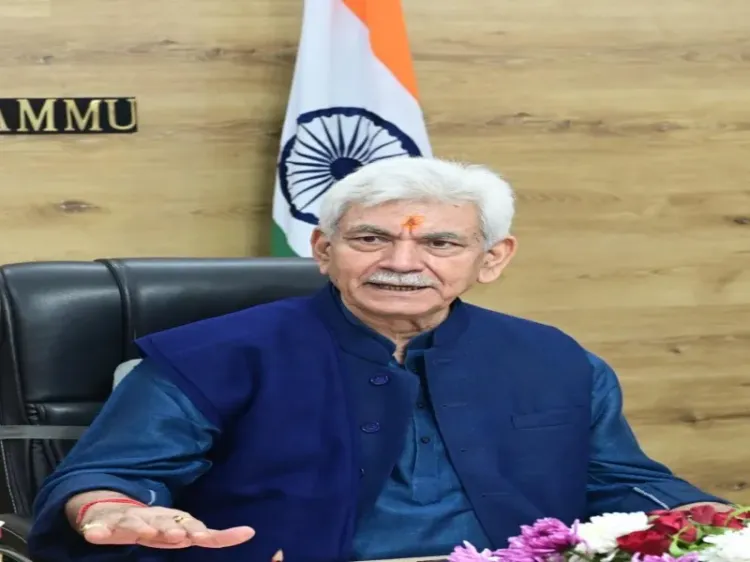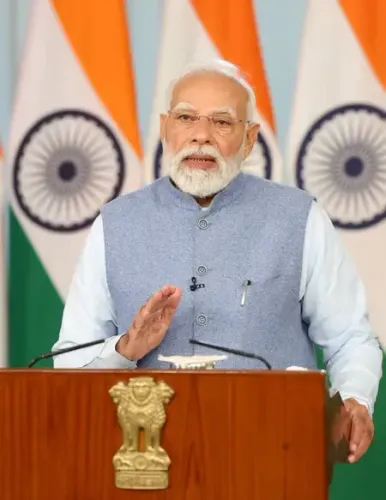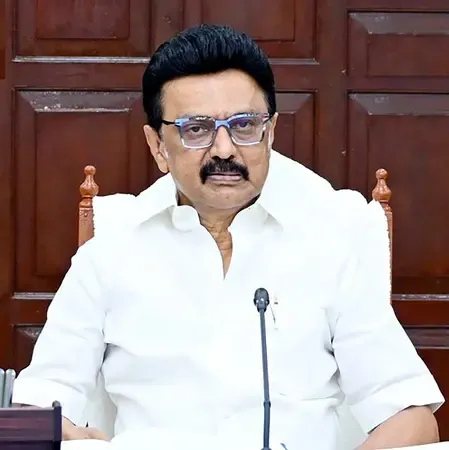How Have Hundreds of Languages Shaped India's Cohesive Society?

Synopsis
Key Takeaways
- India's linguistic diversity is a source of societal strength.
- Unity in diversity is essential for national development.
- Young people are encouraged to learn new languages.
- Hindi acts as a bridge between diverse linguistic backgrounds.
- Preservation of cultural heritage in languages is crucial.
Srinagar, Sep 19 (NationPress) The Lieutenant Governor of Jammu and Kashmir, Manoj Sinha, stated on Friday that the vast array of languages and dialects in India contributes significantly to a cohesive society that propels the nation’s transformation and progress.
During a national seminar focused on the integration of Indian languages, organized by the National Institute of Technology (NIT) Srinagar and Bharatiya Bhasha Samiti, the L-G emphasized the importance of linguistic diversity.
“With the establishment of peace and stability, fueled by a spirit of unity and shared aspirations, India is poised for robust development,” he remarked.
L-G Sinha highlighted that India's extensive linguistic diversity is a vital asset.
He stated that the multitude of languages and dialects have fostered a cohesive society that is driving substantial transformation and development.
“Regardless of our varied backgrounds, languages, dialects, and ideas, a shared national identity and collective consciousness bind us together. It is crucial that we leverage the strength of our unity in diversity for nation-building,” he asserted.
“Our goal should be to ensure that Hindi remains a crucial medium, bridging gaps between different linguistic groups, inspiring individuals to learn other languages, while enhancing mutual collaboration and economic integration,” he added.
He urged all societal segments to actively work on preserving and promoting the rich cultural legacy embedded in all Indian languages.
The L-G encouraged the youth to rise above linguistic barriers and join forces to transform India into a Viksit Bharat.
“Your mission should be to forge a glorious, developed India by eradicating remnants of a colonial mindset,” he stated.
He stressed that the global community is looking toward India with hope for future opportunities.
“The 21st century is destined to be India’s century. This is unequivocal. Steady growth and productivity will elevate India to the status of a dominant global power,” the L-G proclaimed.
He also motivated young students to learn new languages, expand their horizons, and drive innovative ideas.
The L-G commended NIT Srinagar for establishing an Official Language Cell and for organizing various initiatives promoting the Hindi language.
During the event, the L-G honored writers, scholars, and researchers for their significant contributions to the promotion of diverse languages.
Present at the L-G’s address were notable figures including Atul Bhai Kothari, National Secretary of Shiksha Sanskriti Utthan Nyas; Prof. Binod Kumar Kanojia, Director of NIT Srinagar; Anshul Garg, Divisional Commissioner Kashmir; G.V. Sundeep Chakravarthy, SSP Srinagar; members of Shiksha Sanskriti Utthan Nyas; and distinguished literary personalities, scholars, faculty, and students.










